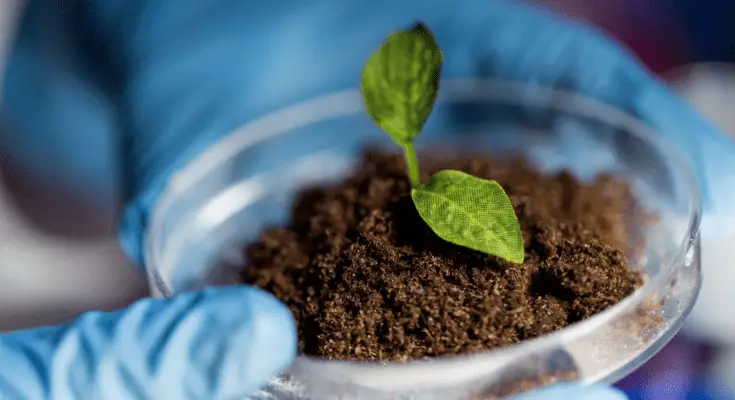Our environment is an important topic in today’s world, with the rising problems that come with climate change. One commonly overlooked part of our environment is plant science.
What do you know about plant science? And why is it necessary for our world?
Let’s go through what plant science is and why it’s important.
What is Plant Science?
Plant science, also known as botany or plant biology, is a type of science that focuses on the study of plants. It encompasses various aspects of plant life. That includes structure, plant growth, reproduction, ecology, and interactions with the environment.
Plant scientists explore the diverse world of plants. That can range from tiny microorganisms like algae to towering trees. They investigate plant anatomy.
This involves studying the internal and external structures of plants. That understanding helps in identifying different plant species and discovering their unique characteristics.
Plant scientists explore the diverse world of plants. This can range from microscopic algae to towering trees.
They investigate plant anatomy, which involves studying the internal and external structure of plants at the cellular, tissue, and organ levels. This understanding helps in identifying different plant species and discovering their unique characteristics.
Types of Plant Sciences
Plant science encompasses several specialized areas of study. Plant anatomy focuses on studying the internal and external structures of plants. It focuses on the arrangement and organization of cells, tissues, and organs in various plant species.
Plant physiology investigates the functions and processes that occur within plants. It looks at photosynthesis, respiration, nutrient uptake, water transport, and hormone regulation. It also looks at responses to environmental stimuli. It aims to understand how plants grow, develop, and interact with their surroundings.
You might also be interested in plant biotechnology. Plant biotechnology is a type of plant science that uses molecular biology, genetics, and other types of science to modify plants.
It involves using biotechnological tools to improve plant traits and develop new varieties. That way, scientists can address challenges in agriculture, medicine, and other areas.
Plant taxonomy involves the identification, classification, and naming of plants. Taxonomists categorize plants into different groups based on their characteristics. Examples include morphology, anatomy, and genetic relationships. This classification system helps in understanding plant diversity and evolutionary relationships.
Plant pathology is the study of plant diseases. It involves the identification, characterization, and management of diseases.
These diseases can be caused by pathogens. Plant pathologists work on developing strategies to control and prevent plant diseases. This helps to protect crop yields.
Plant genetics explores the inheritance of traits in plants. It evaluates the mechanisms of genetic variation. It also looks at identifying and manipulating genes responsible for specific plant characteristics. It involves studying plant genomes and genetic engineering. Specialists also study the development of genetically modified crops.
Plant breeding focuses on developing new plant varieties with improved traits. Scientists select and cross plants to create offspring with desirable characteristics.
Benefits of Plant Science
Plant science offers numerous benefits to society and the environment.
Plant science plays a vital role in ensuring global food security. Scientists work to develop high-yielding and disease-resistant crop varieties. They use plant breeding, genetic engineering, and improved agricultural practices. They also study plant nutrition and soil management.
That helps people optimize crop production. In turn, this can help with stable food supplies. It can help address the challenge of feeding a growing global population.
It contributes to environmental conservation efforts. By studying plant ecology and biodiversity, scientists gain insights into the role of plants in ecosystems.
They can learn about the impacts of human activities on natural habitats. This knowledge aids in conservation strategies and the restoration of degraded lands. It can also help with the preservation of endangered plant species.
Plants play a major role in fighting climate change. They absorb carbon dioxide through photosynthesis.
Plant scientists study plant responses to climate change. Then, they develop strategies to enhance carbon sequestration and adaptation in plant species.
They also contribute to the development of biofuels and other renewable resources. This can help reduce reliance on fossil fuels.
Many plant species possess medicinal properties. Plant science helps in identifying, studying, and harnessing these valuable compounds.
Plant scientists explore traditional medicinal knowledge. They conduct bioactive compound screenings and investigate the therapeutic potential of plants. This plant research leads to the development of new drugs and herbal medicines.
Plants have the ability to remove pollutants from soil, water, and air through a process called phytoremediation. Plant science research identifies plant species that can efficiently clean up contaminated sites. It can also contribute to environmental remediation efforts.
Financial Benefits of Plant Science
There are also economic benefits to plant science. Plant science enables the development of crops with improved traits. Helpful traits can include increased yield or enhanced nutritional value. They can also develop better resistance to pests, diseases, and environmental stresses.
These advancements help farmers increase productivity and reduce losses. Overall, it can improve the quality of agricultural produce.
Plant science research and innovations have significant economic benefits. Improved crop varieties, agricultural technologies, and efficient farming practices lead to increased agricultural productivity.
They can generate higher incomes for farmers and economic growth in rural communities. The plant-based pharmaceutical industry, horticulture, and forestry sectors also contribute to job creation. This further helps with economic development.
Learn More About Plant Science Today
Clearly, there’s a lot to know about plant science. This is just the beginning. If you’re interested in the topic, make sure you do more reading on it!
Do you want to learn more about different technology and science topics? Some of our other posts may be beneficial for you.


